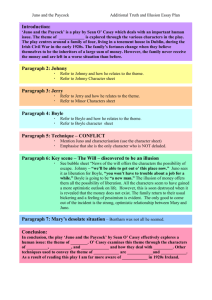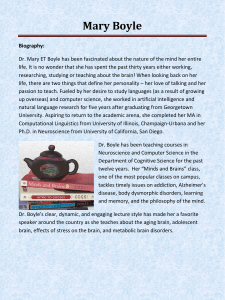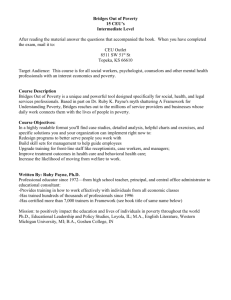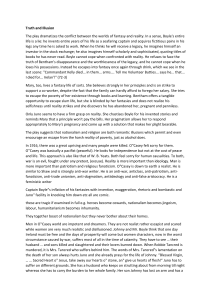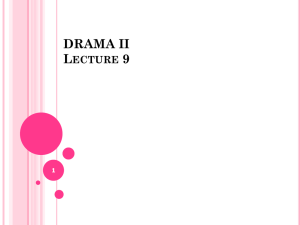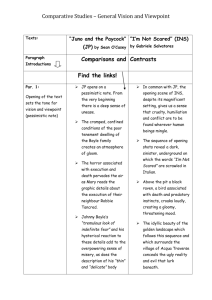Juno and the Paycock
advertisement
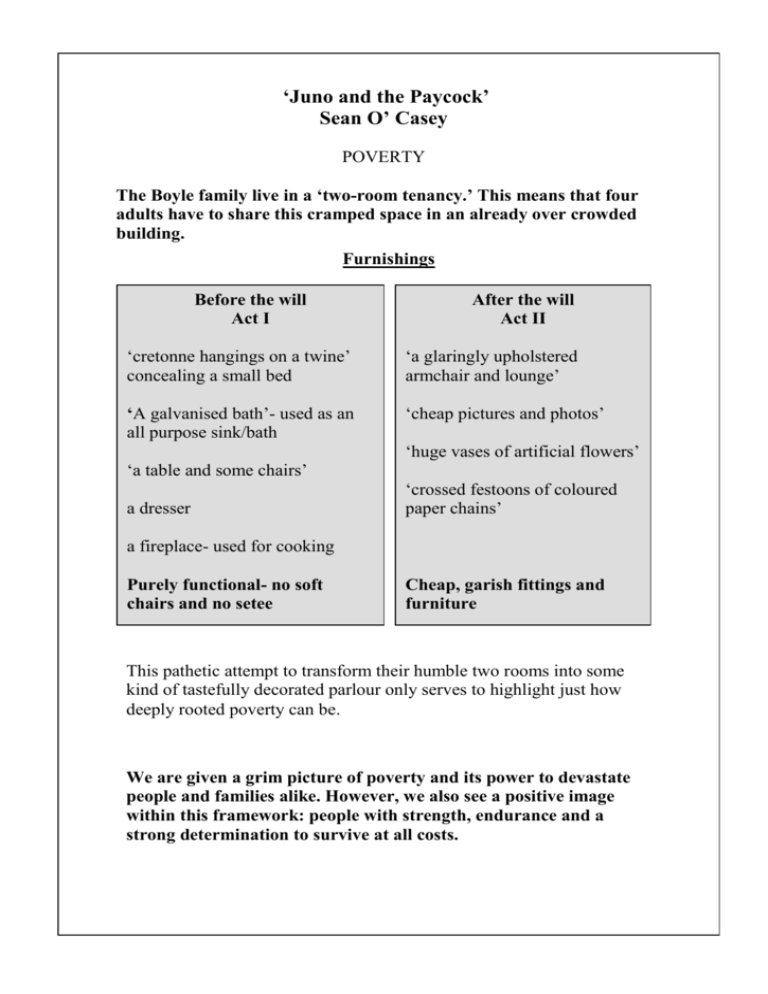
‘Juno and the Paycock’ Sean O’ Casey POVERTY The Boyle family live in a ‘two-room tenancy.’ This means that four adults have to share this cramped space in an already over crowded building. Furnishings Before the will Act I After the will Act II ‘cretonne hangings on a twine’ concealing a small bed ‘a glaringly upholstered armchair and lounge’ ‘A galvanised bath’- used as an all purpose sink/bath ‘cheap pictures and photos’ ‘huge vases of artificial flowers’ ‘a table and some chairs’ a dresser ‘crossed festoons of coloured paper chains’ a fireplace- used for cooking Purely functional- no soft chairs and no setee Cheap, garish fittings and furniture This pathetic attempt to transform their humble two rooms into some kind of tastefully decorated parlour only serves to highlight just how deeply rooted poverty can be. We are given a grim picture of poverty and its power to devastate people and families alike. However, we also see a positive image within this framework: people with strength, endurance and a strong determination to survive at all costs. Juno Mary Juno’s face ‘has now assumed that look which ultimately settles down upon the faces of women of the working-class; a look of listless monotony and harassed anxiety, blending with an expression of mechanical resistance.’ These features are the results of poverty. ‘Were the circumstances favourable she would probably be a handsome, active and clever woman.’ O’Casey draws our attention to one of the misfortunes of poverty: that of wasted potential. Mary’s environment pulls her back, degrading her speech and manners, and Mary must fight back against this if she is to escape the same fate as her mother: “Two forces are working in her mind-one, through the circumstances of her life, pulling her back; the other, through the influence of books she has read, pushing her forward. The opposing forces are apparent in her speech and her manners, both of which have been degraded by her environment, and improved by her acquaintance- light though it may be-with literature.” Johnny Boyle The effect of poverty has made him react and turn to on the nearest and most easily recognisable form of authority- the Government. Johnny has wasted his youth fighting for a cause that obviously has no regard for individual human life. He was maimed by poverty long before he lost his arm and injured his hip. The effect of poverty has made him succumb to a system, which does nothing for him, by doing nothing for it in return. He accepts his lot. If society says he is to be poor then so be it. He expects nothing from society, and in return will not offer to do anything for society. Even if Boyle were hard-working he would have no rewards- he would still barely scrape a living. To earn respect Boyle creates a romantic image of himself, for example Captain Boyle, and so on.


